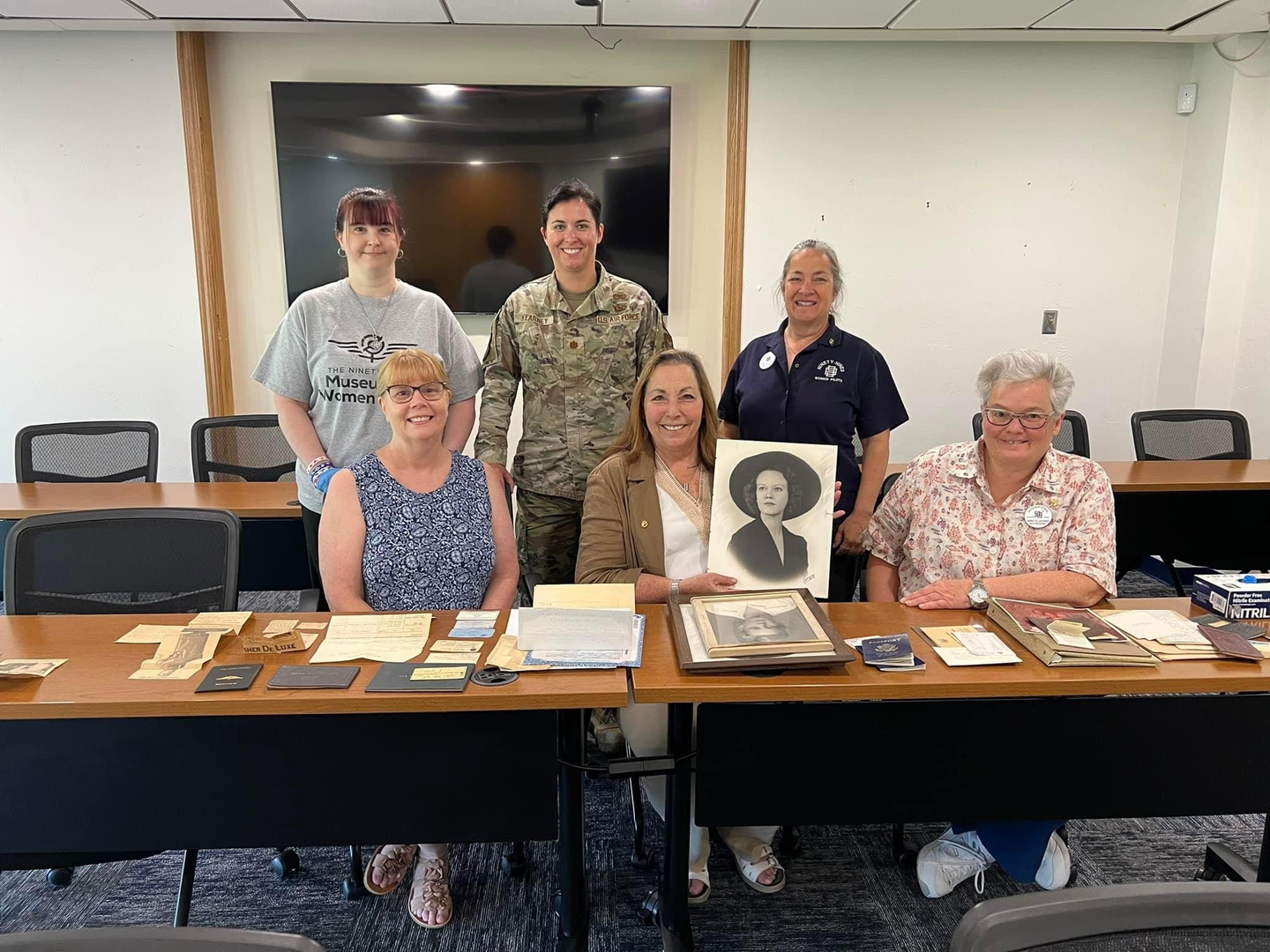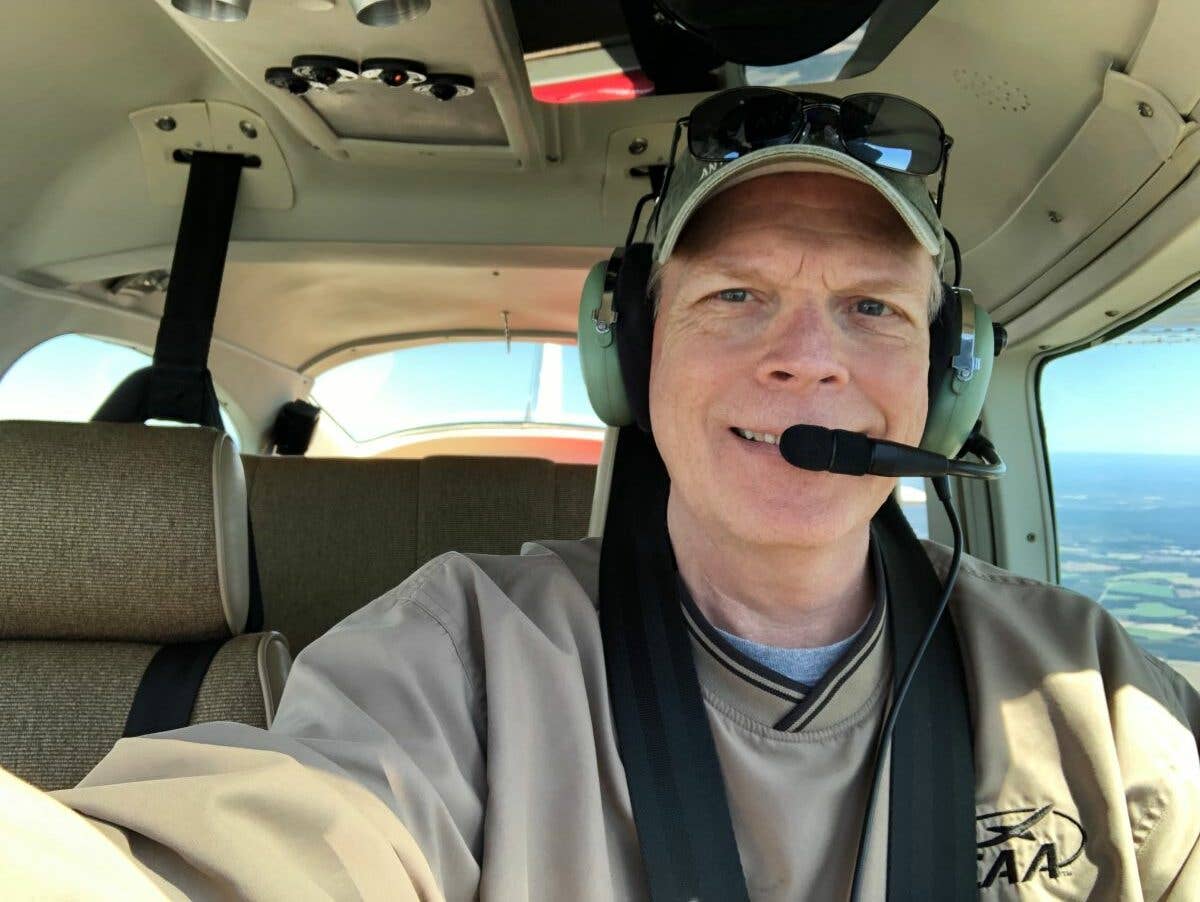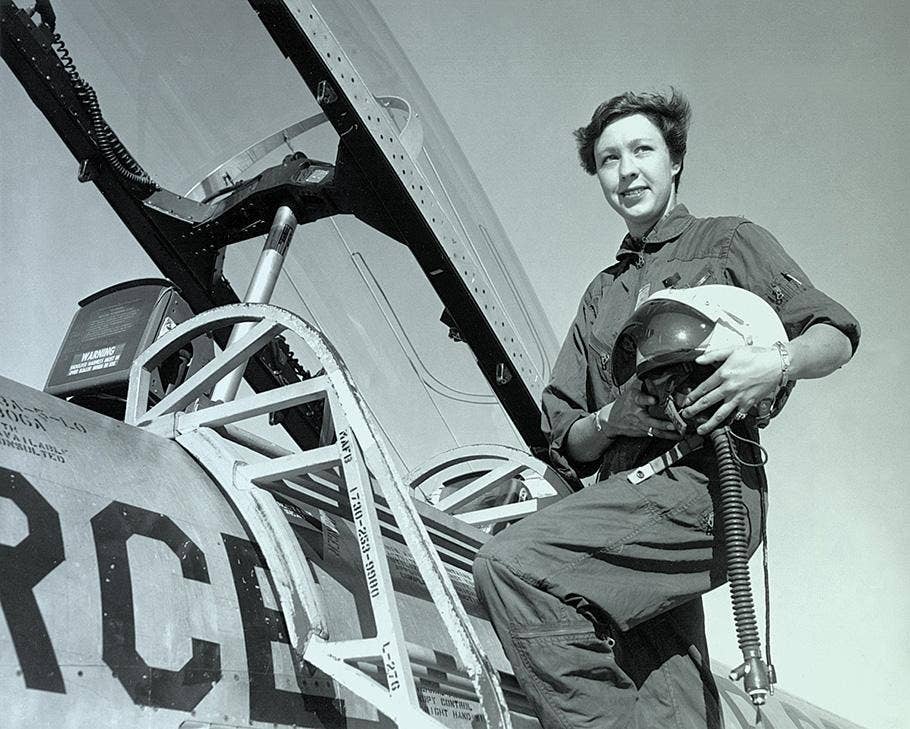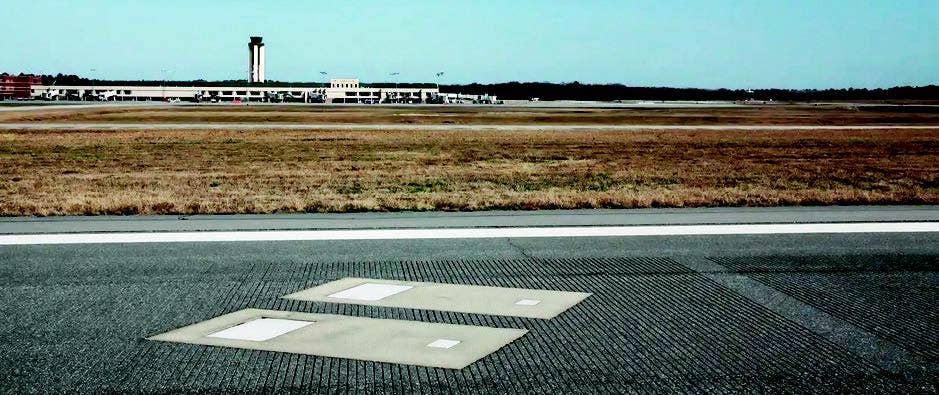Some Just Diagnose Problems Better Than Others
Santa Fe Aero Services in-house avionics guru has the kind of brain that likes to solve puzzles.
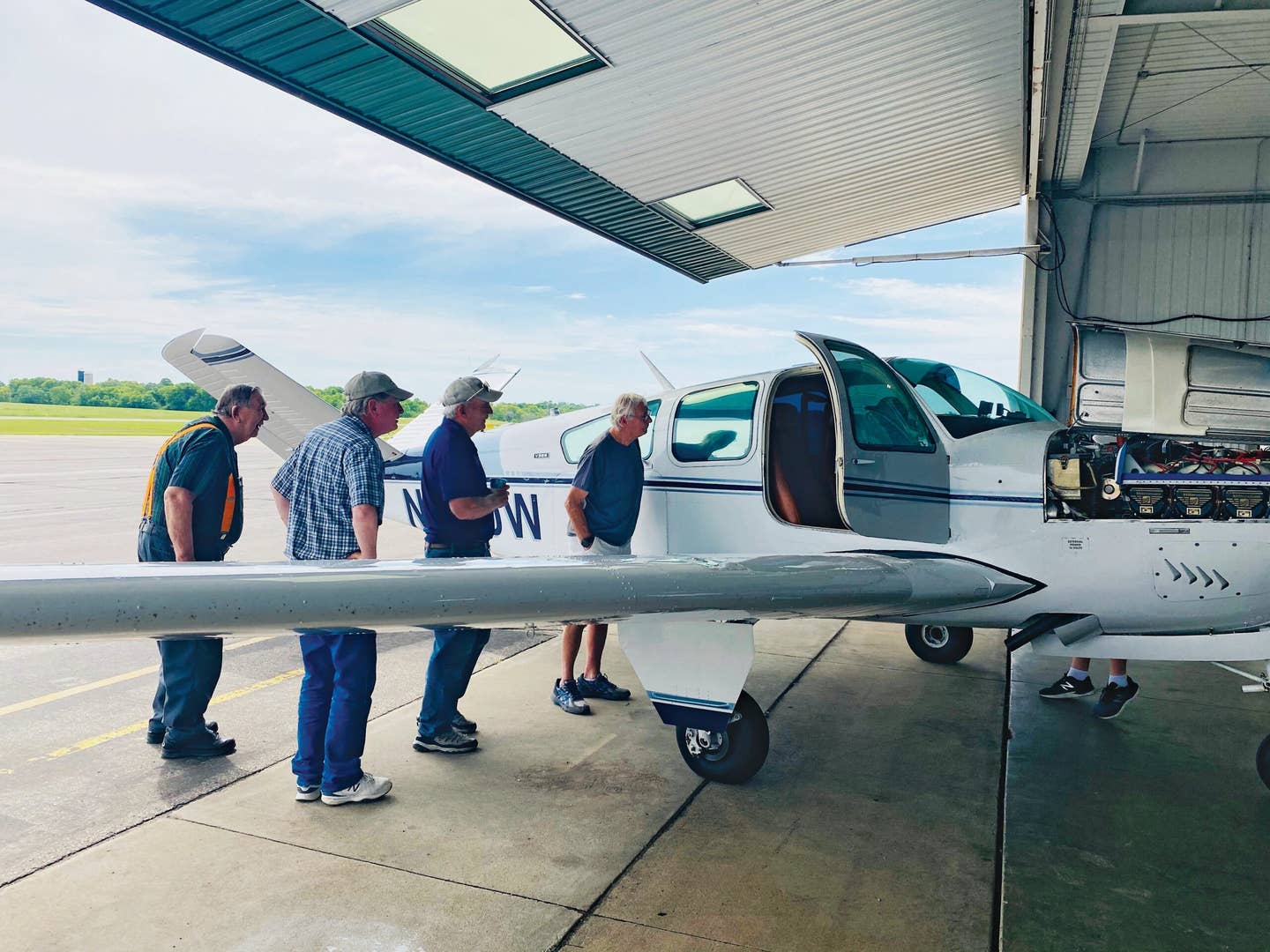
When it comes to diagnosing issues with airplane systems, some people are just better at it than others. [Courtesy: Ben Younger]
Making my way across the country in May, I enjoyed an involuntary extended stay in Santa Fe, New Mexico, after the failure of a servo on my autopilot. The Beech Bonanza was airworthy, sure, but I’m not interested in hand flying over a thermal-laden desert landscape for hours on end. Been there, done that. And with the Writers Guild of America being on strike, I was in no rush to get home anyway.
Waiting for the parts to arrive, I called someone I met a few years earlier when I was stuck in Albuquerque during COVID-19. Back then, Brandon Maestas was the in-house avionics guru at Santa Fe Aero Services, and he got my Garmin software updates squared away while we all waited for the world to come back. It was nice having some order in an otherwise chaotic moment in all our lives. I recalled him being a smart technician and getting things done quickly and cleanly. You remember people like that when they touch your airplane.
If you're not already a subscriber, what are you waiting for? Subscribe today to get the issue as soon as it is released in either Print or Digital formats.
Subscribe NowI rang up Maestas this time around to find he had left Santa Fe Aero for Los Alamos National Laboratory. Yeah, that one. He still does work for Santa Fe on the weekends, though, and agreed to meet me on a Saturday to update the software on the many boxes in my aviation stack. It was just the two of us in the large hangar, and we had time to catch up as the software loaded. Maestas’ new job involves him keeping 400 CNC machines running at the labs, and he loves the problem-solving skills the job requires.
Maestas has the kind of brain that likes to solve puzzles. Give him something broken, and he will fix it. Describe an issue, and he will diagnose it. I get it. Think of the joy we all felt as children in finishing a jigsaw or solving a logic puzzle. The satisfaction felt in “working the problem” is supported biochemically by bursts of dopamine. As it turns out, some of us are just better at it than others.
Sitting in the airplane, I told Maestas about a particular squawk in my avionics stack that no one, not since its installation, has been able to sort. When I say no one, that includes techs at Garmin, the entire online BeechTalk community, and at least five avionics shops spanning the country.
When I press the power button on the G5 AHRS unit that controls my autopilot in flight, the strangest thing happens: The tail will wag once, intensely, then settle back into coordinated flight. It’s disconcerting to say the least, and you must decide how badly you want to change the dimmer settings on the unit—the only reason I ever futz with the G5. My guess has always been that it’s a wiring issue. Something must have gotten crossed in the install so that the electrical impulse of pushing the power button somehow energizes the yaw damper.
I told him my theory while sitting in the airplane, and he neither nodded nor spoke. In Brandon-speak, that means my idea was being tacitly dismissed out of hand in real time. Right. I’ll be quiet now. Maestas sat there in the left seat thinking, considering, working. He then reached over and pushed the button himself. I knew better than to tell him the G5 had to be powered up for the oddity to occur. He then pushed on the other side of the unit, where there is no button at all. I was confused and skeptical at this point, but I just watched silently.
He then turned to me. “The G5 isn’t tightened down all the way,” Maestas said. “When you press the power button, you’re moving the unit itself, causing the internal, solid-state accelerometers to yaw. The servo is just reacting to the input.” I pushed on the unit myself. It moved, yes, but less than one-eighth of an inch. I told him that didn’t seem like nearly enough of an input to elicit that strong a response.
He just looked at me. I doubled down. “If a loose screw is the reason this has been happening for five years, I’ll buy you dinner next time I’m in town.”
Maestas took out a small screwdriver and tightened down the offending fasteners and replied without looking at me: “Where are you going to buy me dinner?”
- READ MORE: Inspired Individuals
My good friend Ilya is an ER doctor working out of a very busy Brooklyn, New York, hospital. He’s had plenty of opportunities to move up to an administrator position. He has declined them all. The extra money requires additional, and in his mind, unsavory work. Fundraising and palm-pressing are not Ilya’s strong suit. He’d rather stay in the trenches and do the real work. Every person that walks into his ER is a puzzle to solve. His brain accesses years of anecdotal, on-the-ground data that he has acquired as a practitioner, which is then cross-referenced with the medical encyclopedia that resides in his head. His brain then goes to work and, sooner than later, a solution is spit out the other end.
He has saved many lives over the years, but his job is still not as celebrated in quite the same way as others. Ilya has a humorous, slight disdain for surgeons and all of the kudos they receive. He explained to me that surgeons are high-level technicians. Craftsmen at best, glorified plumbers at worst. There is a skill set involved, no doubt, but it requires little thought. They don’t have to figure out much. The problem has already been solved by the diagnostician. They just have to implement the solution. They have to cut. And while both Ilya and Brandon are adept at using their hands to execute a designed course of action, the real joy lies in the diagnosis, in solving the puzzle. Why is this happening? Where did it originate? How can I fix it?
In my quest to get home, I found an angel in David Espinosa of Air One Systems. His shop is at the Double Eagle II Airport (KAEG) on the outskirts of Albuquerque. Espinosa interfaced with Garmin and got my new gyro ordered and installed. All was well again. I finally departed Santa Fe and continued my journey back east. Fried chicken in Memphis, Tennessee, and grits in Arkansas completed the trip home. On my last leg, up at cruise altitude, I reached over and carefully pressed the power button on the G5.
Nada. Nothing. No yaw. No movement. Not from the unit or the airplane. Just a command to change the dimmer setting. Looks like I’ll be buying dinner next time I pass through Santa Fe. Brandon’s choice.
This column first appeared in the October 2023/Issue 942 of FLYING’s print edition.

Subscribe to Our Newsletter
Get the latest FLYING stories delivered directly to your inbox



